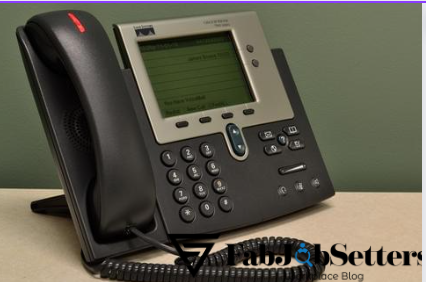TELEPHONE ETIQUETTE IN BUSINESS

Telephone Etiquette in Business
One method of communication is the phone. Business Telephone conversations in business can take place between coworkers, clients, suppliers, and other parties. We will concentrate more on telephone communication with customers for this work and more importantly telephone etiquette in business. Organizations use the telephone to communicate with their clients. With the rise of internet commerce and the usage of social media and other online sales channels, the telephone is now more significant than ever.
The telephone is one of the main ways that customers interface with the businesses they utilize their products or services. Despite not being physically visible during a telephone conversation with clients, body language still plays a crucial part. Therefore, make an effort to communicate effectively with your customers by using the best body language possible.
REASONS WHY CUSTOMERS MAY CALL A FIRM
The following are potential justifications; a client might choose to call a business.
- Place an order for a product.
- Make a recommendation and complaints. Customers express satisfaction or dissatisfaction with prior services they received from the business through the telephone.
- Ask for guidelines on how to purchase, use, or couple a product.
- Feedback on the quality of the goods or services received. Getting consumer feedback is useful when determining how users feel about a product. This will help firms make improvements where necessary. necessary.
- Other urgent needs to reach the company concerning a product.
TELEPHONE TIPS
- As soon as the phone rings, put out all of your efforts to answer it. Leaving a customer call ringing repeatedly before picking up does not reflect well on the company. Therefore, the phone should always be in good condition and close to the call agent.
- Have a pen and paper handy so you can take notes. Making a note of what the consumer says can help ensure that all of their points are covered. Additionally, record the customer’s information, including name and phone number, in case a callback is necessary or the phone hangs up mid-conversation (due to network issues or other unforeseen circumstances). Note-taking will help you summarize or repeat everything the caller stated. To make sure no key point was omitted, do this.
- Introduce yourself, your firm, and your department. As soon as the call is picked, with a warm voice. Example: Thank You for calling XYZ company, my name is Mary, how may I be of service to you?
TELEPHONE ETIQUETTE FOR BUSINESSES
- Give the client a chance to speak by asking them to introduce him/herself and then explain the reason they are calling.
- Show empathy where necessary. It is important to feel concerned for your customer’s problems if need be, assume yourself in the shoe of the customer.
- Speak clearly and audibly. When both speakers can hear each other over the phone, the conversation flows easily. Being audible does not entail shouting. Always maintain a professional demeanor.
- Use a cheerful tone of voice. Customers can know when you’re smiling even though they can’t see your face. Customers always prefer to patronize establishments where they are spoken to gently, and a pleasant voice will make the interaction memorable.
- Pay close attention to how and what the customer is saying. Here, listening skills are crucial since they prompt customers to explain why they are calling. Avoid drawing hasty judgments. Patience and calmness are necessary for listening.
TELEPHONE ETIQUETTE FOR FIRMS
- Only provide the customer/caller with factual information. Make no assumptions regarding the solutions you provide. You may excuse the caller and ask for further details regarding possible solutions to the issues the consumer has identified.
- If the call needs to be transferred, walk the caller through the process and explain why. Calls should only be forwarded to the appropriate staff. It is crucial to make every effort to solve problems on your own, however, there are rare circumstances in which the demands of the customer go above and beyond the requirements of your position. You can settle such issues by involving another suitable person.
TELEPHONE TIPS FOR BUSINESSES
- If you must put a caller on hold, be sure to give them an explanation. Check in frequently while the caller is on hold to let them know that they have not been forgotten and that their request is still being processed.
- When you promise to call back, please do so. Fulfilling all promises made to customers makes you more reliable and increases the firm’s reputation. Therefore, do not overpromise and under-deliver. Also, follow up action where necessary.
- Use your communication skill to build and maintain rapport with the caller.
- End the call with a warm smile, and thank the client for calling. Example: Thank you for calling ma/sir, do have a wonderful day ahead.
Also see: https://fabjobsetters.com/a-positive-attitude-makes-the-difference/

Don’t in telephone communication
- Do not interrupt the caller while he/she is speaking.
- Do not eat, chew or drink.
- Do not hang up on the caller. Slanging the phone entails rudeness. Always give the caller the option to disconnect and hang up. However, if a caller is excessively holding up the line, you can help by asking, “Ma’am, Sir, is there anything else I can assist you with?” This will signal the caller to either speed up and ask another question or end the conversation by stating, “Nothing else.”
- Do not speak in a harsh voice or angry tone.
Do not in telephone communication
- Do not drop the phone off before the caller or while the caller is still speaking.
- Do not interrupt the customer while they are still speaking. When you are on the phone with a consumer, demonstrate your ability to listen actively.
- Do not be distracted when on a call with a customer. Keep yourself focused when on call. Anything that can cause you to lose focus and miss what the consumer is saying should be put away. The customer can sense when you are not paying attention and are preoccupied even if they cannot see you face-to-face.
Take home
For employees to give clients a satisfying experience, organizations should routinely train them on correct telephone etiquette.








